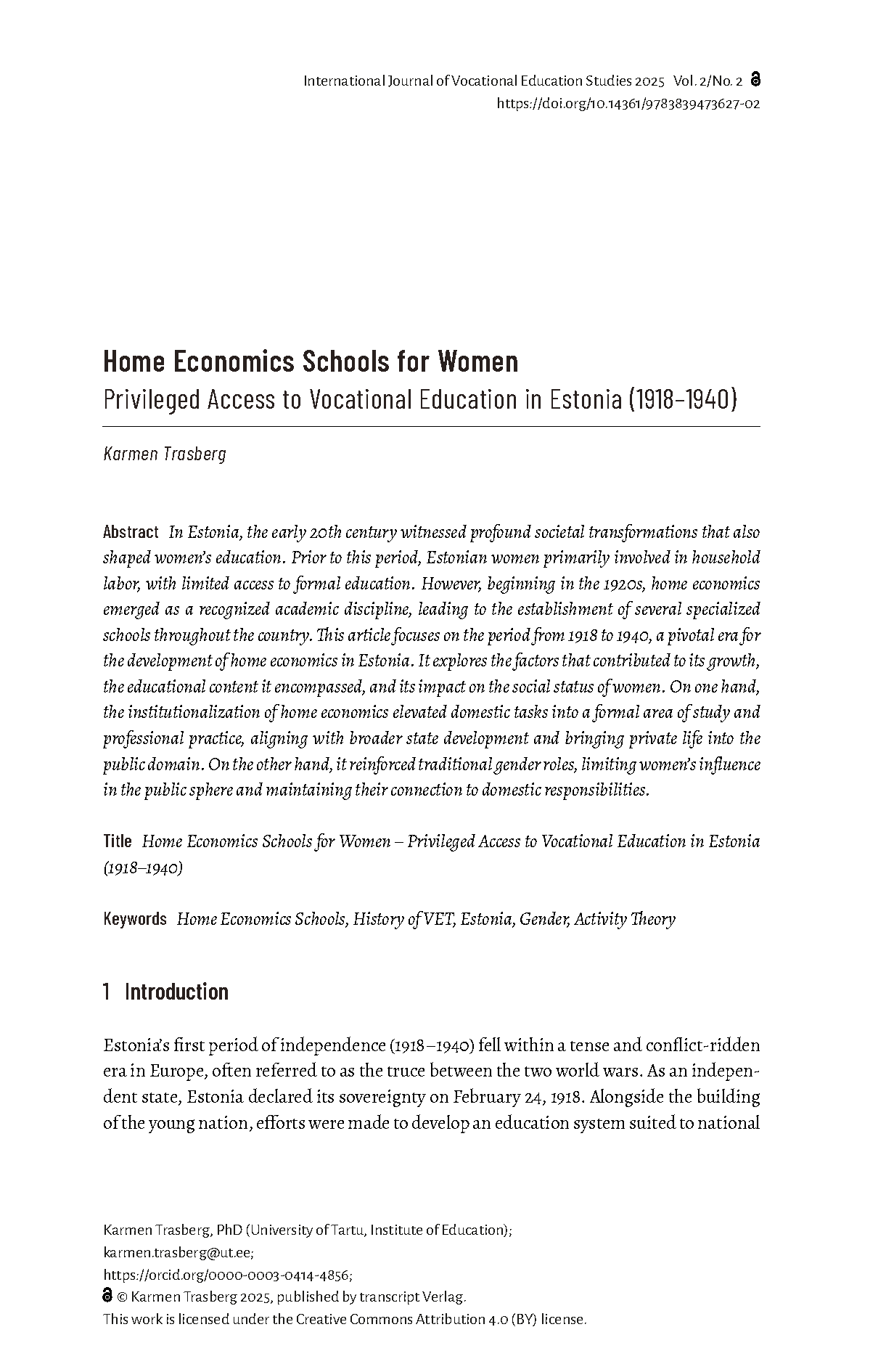Main Article Content

Abstract
In Estonia, the early 20th century witnessed profound societal transformations that also shaped women’s education. Prior to this period, Estonian women primarily involved in household labor, with limited access to formal education. However, beginning in the 1920s, home economics emerged as a recognized academic discipline, leading to the establishment of several specialized schools throughout the country. This article focuses on the period from 1918 to 1940, a pivotal era for the development of home economics in Estonia. It explores the factors that contributed to its growth, the educational content it encompassed, and its impact on the social status of women. On one hand, the institutionalization of home economics elevated domestic tasks into a formal area of study and professional practice, aligning with broader state development and bringing private life into the public domain. On the other hand, it reinforced traditional gender roles, limiting women’s influence in the public sphere and maintaining their connection to domestic responsibilities.
